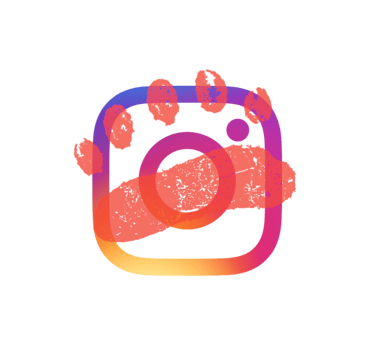Meet Micah!
Interview with author, illustrator, and public speaker Micah Dawanyi
6/19/2023
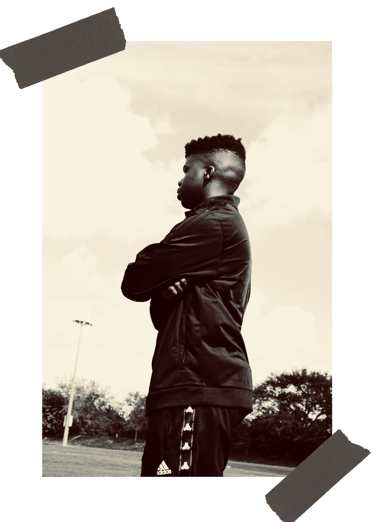

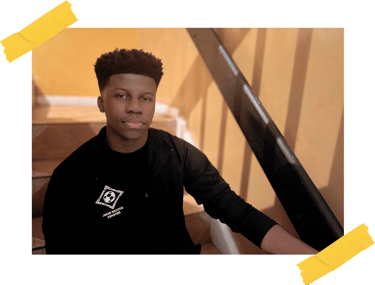

Last month if you would've asked me who Micah Dawanyi is, I wouldn't have had a clue. But after talking with him for this series, I'll be shocked if soon everyone doesn't know who he is.
Before graduating high school, Micah was on the soccer team, part of the yearbook staff, was an assistant varsity coach, and won his city's 2018 Martin Luther King Jr award, among other things. After having to quit playing sports due to a heart condition, he changed trajectory and is now a published author, illustrator, and public speaker. Let's get into the mind of Micah Dawanyi!
You've accomplished so much at such a young age including having to give up a potential career in sports. Many adults would have a hard time overcoming that, yet you pushed ahead. I love your quote, “If a door closed on me, I was going to build my own door.” Was that mindset ingrained in you as a young child? Does that attitude come easy to you or is it something you have to constantly work at?
I don’t know if that mindset was always ingrained in me, but adapting that mindset became inevitable. My life has always been defined by adversity, as far as my health challenges, family-life dynamics, and day-to-day living went. The ability to be resilient definitely didn’t come easy to me. When I first started experiencing my heart problems (for example), my mental health suffered. That affected my athletic career almost just as much as the actual medical issues did. But eventually I had to learn to fortify my mind. Especially after dealing with life-or-death circumstances, I started to think about how to honor the gift of life- even when it didn’t really feel like a gift. That’s what drives me these days to do whatever I need to when it comes to meeting my goals.
As far as the “building my own door” mentality, I’m still working on that today. I’ll probably be working on that in 10 years too. When I’m working towards something, one thing I try to do these days is just allow myself to go through every emotion that arises. I’m not a robot, so the idea of becoming resilient isn’t about working to be completely devoid of any negative emotions. Heartbreak, embarrassment, failure, angst; those things are all part of the process. But two things can coexist at the same time. I can feel terrible about things not going my way and still know that I can’t give up on whatever it is I’m chasing.
You've mentioned before that you don't want to turn the audience off by sounding overly smart or too preachy. It's obvious you understand the importance of reaching your audience on a level that feels comfortable to them. Was there an early experience where you realized that language has power?
Probably growing up in church. I never liked the pastors that just tried to preach at the audience and tell everyone what they were doing wrong with their lives. I liked the messages where speakers would take you on a journey, give you perspective, and look at things from all sorts of angles. Often they’d use storytelling to connect to a deeper theme, like purpose or tackling obstacles in your life. There was a similar idea in school with teachers as well. Ultimately, I learned that language can be used to engage people or disinterest people... it’s all in the approach.
Your most recent book, Battle Scars & Blossoms: A Journey Through the Mind, teaches readers to face their past traumas. While this is one of the greatest lessons we can learn, I think most adults still don't have the ability to do this, let alone the children they are raising. Was bringing awareness to the importance of mental health something you always planned to do or was it a recent decision?
It was a recent decision. My first book had one bonus chapter where I briefly touched on mental health, and that ended up being everyone’s favorite chapter. At that same time, I’d also started to work through my childhood traumas in college. I found out that my school offered counseling sessions that were included in tuition, so I started going and opening up about my life. I’d also switched my degree from exercise science to health science and psychology. So with all of that in mind, I was being exposed to mental health-related subject matter from just about every angle of my life. I knew that mental health was an important topic, mainly because of the stigmas. I was also really excited to try out fiction, given that my first book was non-fiction. I wanted to use different characters to represent the complexities of facing your traumas. Part of the journey is the main character's apprehension about opening up as well as how he feels about his own traumas. Another element that I explore is the relationship between parents and children, and how unhealthy coping mechanisms and generational cycles of trauma are passed down. My interest in touching on these nuances came from my experiences and my own journey.
I read in a different interview that you are a perfectionist and that most of your writing gets thrown out. Which scene, character, or plotline from Battle Scars & Blossoms changed the most from first draft to final draft?
The main character changed the most. I had a character named Jay who was originally supposed to be the main character. I was fleshing out the backstory of one of his friends, Noel, and realized that Noel’s backstory detailed the emotional nuances of a mental health journey far better than Jay’s. So Noel became the main character.
As you mentioned, the story is about facing your traumas. I knew that, of course, Noel wasn’t going to be willing to do that at the beginning of the book. I started to think about what he might try to do to distract himself from focusing on his problems, and I was actually going to have him join his school’s football team. A lot of people like to keep themselves busy so they don’t have to face the darkness that floats around in their minds, and I wanted to touch on that. But I ended up not using football to represent that idea because I questioned whether enough people would be interested in sports-related scenes. Even though I grew up an athlete, I know that there are a lot of people that don’t care about sports at all. So yeah, Noel’s character arc and progression changed a lot. I’m happy with what I ended up with, and I think readers are too.
Are you interested in trying out lighter genres where you can weave important topics into what is normally considered less serious genres, such as comedy or romance? Or do you enjoy writing more dramatic works?
Yes, I’m definitely interested in trying out lighter genres! I’d love to explore fantasy and romance more. My stories will probably always have elements of drama in them, but I can incorporate those elements into different kinds of stories. I think I’ve already tried that in a small way. Battle Scars & Blossoms has certain comedic elements, although it deals with a very serious topic and is more dramatic at times. I want to expand on that and continue to blend different genres with my writing. One thing I’m realizing is that I love to push creative boundaries, and I don’t like to do the same thing twice. I’ll definitely be continuing to experiment, and I think readers will enjoy what I come up with.
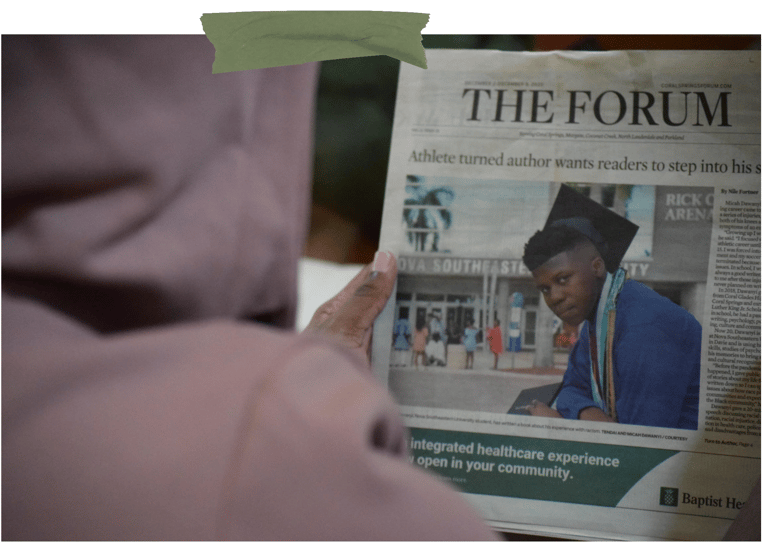

Micah Dawanyi is the author of Step into My Shoes: Memoirs From the Other Side of America and Battle Scars & Blossoms: A Journey Through the Mind.
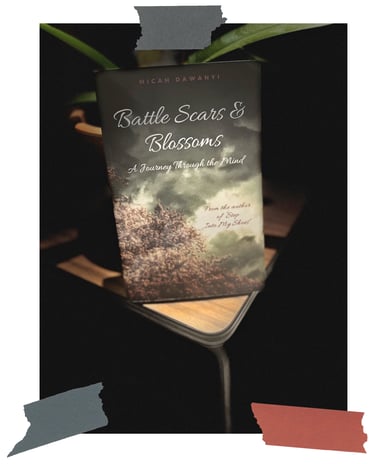

Now that you've ventured into the nonfiction world, are there any specific creative boundaries that you're excited to try pushing past?
Yes! I recently said to my dad that I want to incorporate characters into my writing that aren’t unequivocally good people. I know that might sound weird, but basically, I want to add new kinds of moral complexities to my stories. Like, for example, I love stories where there’s a villain, but you’re also kind of rooting for them because they kind of make sense, but they're also doing horrible stuff at the same time. I just love those kinds of complexities- or maybe nuance is a better word. I want to push boundaries by creating more nuances in my storylines. I think those elements are fascinating when used correctly and when they are in service of a cohesive storyline.
The way you spoke of Ryan Coogler in your interview with Outlander Magazine had me immediately hoping that you'll one day explore screenwriting. Have you thought about adapting your books for screen? And on that note, if Battle Scars & Blossoms were made into a movie, and you could have any actors you wanted, who would play your characters?
I’ve most definitely thought about screenwriting. I’ve worked on playwright projects before, so screenwriting would be a next step. What’s really cool is that you can work on the most impactful projects without having to be in the spotlight. That’s what I like. I could have writing credits on blockbuster movies, or impactful tv shows, and still walk the streets without most people noticing me. That’d be amazing.
As far as my books go, yes, I’ve thought about adapting my books for the big screen. I’m starting to realize how many live-action and animated projects are novel adaptions, which is interesting. I don’t think I realized that growing up, but books seem to be a great source of inspiration for screenwriters. If Battle Scars & Blossoms was made into a movie, I’d want to assemble a cast that would have good chemistry. I wouldn’t just want to throw together a bunch of big-timers just for the sake of it. For the younger characters, it’d be amazing to have Asante Blackk, Caleb Mclaughlin, Storm Reid, and Tai Beasley as part of the main ensemble. For the older/adult characters, I’d love to include Jeffrey Wright, Danielle Deadwyler, Marlon Wayans, and Maya Rudolph.
I can honestly say, however, that I’d much rather have my novel adapted for a TV show. I think there would be a wonderful opportunity to have the main character’s arc evolve over several seasons as he began to face his traumas and heal. There are other interpersonal relationships that would probably evolve over several seasons too, dealing with marriage, father and son dynamics, and more.
Do you have any interest in directing?
For sure! A lot of directors are also writers. But it seems like as they work on scripts, they are thinking about the visual elements necessary to bring the story to life. I’m already thinking of those things, even with just my novels. So to actually have the space to bring visual ideas to life would be amazing. I’d definitely want to learn first though. Entering into the world of production as a writer on a team would be ideal because then I could immerse myself in the world of filmmaking with slow and steady progress. I could continue to learn and eventually work my way up to directing. I see all of that as a possibility in the future- I even want to get into voice acting as well.
Anyone who has kept up with your work knows that your books aren't just reading material, they are full experiences. You created a podcast that goes alongside Step into my Shoes: Memoirs From the Other Side of America that enables readers to feel more connected to you and the important racial topics covered in your book. When Battle Scars & Blossoms came out, you also released a soundtrack that follows the story in sequential order. I think these are fantastic and interesting ways to connect with the reader on a deeper level. How do you decide what “experience” should go along with your book? Is it just something that pops in your head or do you brainstorm and take time to figure out what the best accompaniment should be?
Well first, thank you!
I definitely take time to brainstorm. But I don’t treat the decisions so seriously like they’re going to decide the fate of the universe; it’s mainly just fun to play around with different ideas. These immersive elements usually grant me the creative freedom to approach the themes in my books from a different angle. With my podcast, I got to interview guests from different places in the world and discuss the topics of my memoir. I was able to expand on my memoir and offer more depth to the social conversations. With my soundtrack, I really analyzed the character’s journeys before selecting the music choices. I pulled from a range of artists and albums, which was fun. What’s even more special is that I’ve seen how much readers enjoy these immersive experiences. I had a really long conversation with one reader who listened to the soundtrack and resonated with Adele's "My Little Love." That song represents Noel's mom and the emotions she wrestles with in the book, and this reader was able to point that out clear as day. I don't tell these stories for instant gratification, but it's definitely nice to see that people appreciate the attention to detail when it comes to how I try to create full experiences with my books.
If you could ask one writer, from any medium, three questions what would they be?
The writer I’d most want to talk to would be Toni Morrison. I’d first ask why writing was the artistic medium she used to express herself. I love to ask writers this question because there’s usually a personal, profound answer. I’d then ask why she experimented with different genres, and what her intent was. I find it interesting that she published novels, poems, essays, short stories, and other pieces. Some writers tend to stay in one lane and only publish a specific type of writing. I’d be curious to see why she wanted to dance around with different styles.
Lastly, I’d ask about her world-building or outlining process. There are so many meticulous steps involved in fleshing out a writing project, and I’m sure I’d learn a lot from hearing about her process.
I mentioned it briefly in the intro, but you're an artist as well as a writer. Is this something you've been practicing since you were a child or is it a skill you developed as you got older?
I took one art class in 6th grade, and I wasn’t very good. But I remember getting an A on an assignment where I had to draw a car, so there was some potential to be discovered with my artistry. I really got into drawing and illustrating after publishing my first novel. I just wanted to get better at designing book covers, so practicing my art skills seemed like the best way to do that. I’ve been developing my skills since 2020 and I now use drawings for things other than book covers. When I’m trying to think of ideas, I’ll draw. Visuals inspire me and help me to identify the themes I want to include in my writing.
I haven't had the pleasure of seeing you speak in public, but I've been told that you “captivate the audience.” Do you find that public speaking allows you to connect with the audience in a way that writing does not?
For sure! Public speaking is a way for me to expand on the ideas in my writing and also share more of myself with the audience. I’ve found myself opening up about my own mental health journey in my latest speaking engagements, which is something that isn’t necessarily found in my writing because my latest novel is fiction.
With book clubs, there’s a similar idea as well. At the last one I attended, I just sat there and answered reader questions for the entire two hours. The readers had questions about me, details about the characters in my book, and more. I just tried to peel back layers of myself and give transparency to the audience. I think that’s the best way to connect with people; by showing up as your authentic self.
Do you think being a writer has helped you as a person?
One thousand percent. You have to have empathy to tell stories. If you’re designing a character, you think about their backstory, internal motivations, and reasons for being the way they are. When they’re on their journey, making mistakes or figuring things out, you understand that those things come from a specific place or chain of events. You’re writing all of those details out, so it makes sense. I’ve started to apply that same empathy to the way that I think about people. It’s not that I lacked empathy before starting to write, but writing has motivated me to try and understand people on an even deeper level. And that (positively) affects the way I can show up for the people in my life.
Writing has also given me a clearer sense of my purpose. Because I use my work to speak about important issues, I wake up with this internal desire to educate, enlighten, and empower people with my words. It’s not my only reason for living but it definitely keeps me going.
If readers are interested in interacting with you, how can they do that?
I’m mainly on Instagram and LinkedIn, and both of my profiles are just my first and last name (Micah Dawanyi). If you want to contact me directly, my email is dawanyi@outlook.com and my Linktree website page is linktree.com/micahdawanyi.
As we wrap up, I also want to say thank you for having me on your platform! This was such a wonderful interview- so well researched, and you asked very intentional questions. This has been one of my favorite interviews ever; I truly enjoyed it.
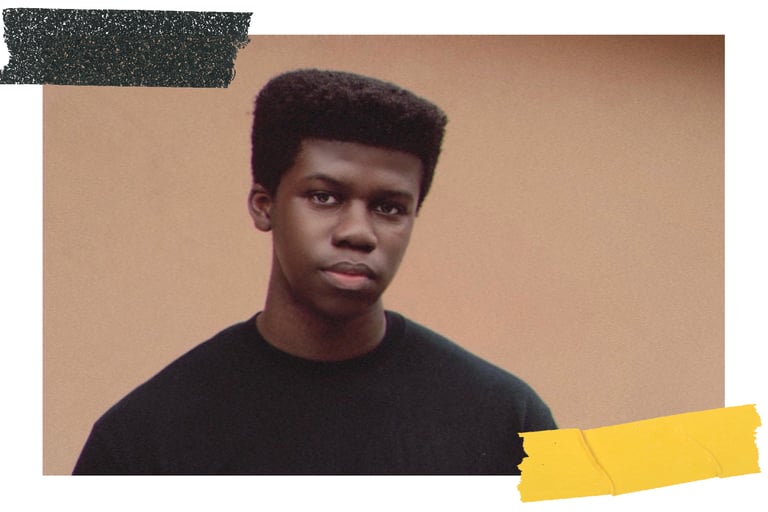

I had so much fun getting to know Micah and can't wait to see what his next project is! Make sure you give him a follow and don't be shy about letting us know your favorite part of the interview.
Photos courtesy of Micah
Don't Miss Out On Any Interviews
Subscribe to get notified whenever there's a new post or something exciting happening.
